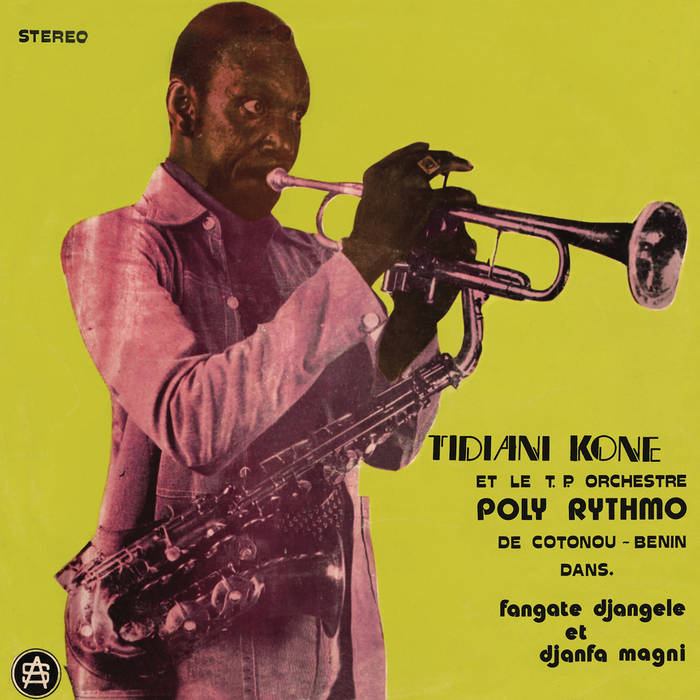For all that we’re living through desperate times, it can be sobering to consider the challenges facing creative people in eras and places by no means unimaginably distant from our own. Take, for instance, the environment that existed in the west African country of Dahomey in the years following a revolution in October 1972. The Marxist government renamed it the People’s Republic of Benin in 1975, but were obviously more than somewhat concerned that enough of those People might at some point decide to try take the possession the new name implied, and went to extreme lengths to close down opportunities for anyone to foment unrest. As T.P. Orchestre Poly-Rythmo founder member Vincent Ahehehinnou told tQ’s Luke Turner in 2011, this imposed a host of restrictions few bands in Europe or north America could have even imagined.
“At that time if a club or a bar did not turn the radio on at 8 and 11 o’clock for the official news so the whole place could hear it, then the bar or the club would be closed,” he recalled. “TV came in 1978, so at that time the President would insist on talking for two hours. … There was also a curfew at 11 o’clock, and Saturday at 3 o’clock. We were never arrested, but they would arrest the audience.”
Yet even in a country where music had to take a back seat to political grandstanding and where playing live or even just listening to records at the wrong time could land you in jail, T.P. Orchestre Poly-Rythmo (the “T.P.” stands for “Tout Pouissant”, roughly equivalent to “The Almighty”) went on to amass a discography of staggering dimensions. The Africa funk expert Florent Mazzoleni reckons the band released more than 50 albums and more than seven times that number of 45s.
Among their most prized and – until now – rarest releases is this 1977 album, a collaboration with Malian saxophonist Tidiani Kone which collates two side-length pieces of contrasting style but identically involving intensity. Side one, ‘Djanfa Magni (La Trahison N’est Pas Bonne)’, shows the influence of their friend and mentor Fela Kuti but, thanks mainly to an electric organ that at times imitates the sound of a vibraphone, would not have felt out of place if bits of it had been interpolated by European groove-centric experimentalists of the Can or Fall schools. ‘Fangate Djangele’, meanwhile, adopts a more shuffling, syncopated style, perhaps displaying as much influence from Caribbean musics as the A-side owes to American funk and psych. Taken as a whole, the record is hypnotic, compelling and consistently thrilling, as the group’s trademark polyrhythms collide and cajole, the brass top-line instruments adding accented melodic punctuation. And as excellent and compulsive as it is, the knowledge that there’s at least another 49 LPs waiting in line behind it is likely to strike the curious newcomer to the Poly-Rythmo world as its most exciting aspect.
There are limitations, though, and buyers should set their expectations accordingly. The music may have been recorded in EMI’s Lagos studio, regarded as probably the best on the continent at the time, but the master tapes, if they still survive, are lost. This reissue has been sourced from the best version available to the label: a collector’s original vinyl copy, by no means in mint condition. The remastering has removed any clicks, scratches or surface noise that may exist on that copy, but the software that can clean up the more obvious imperfections is powerless to correct the inner groove distortion that becomes increasingly more audible as the two lengthy tracks progress.
The result is that what begins as crisp, clear and bright-sounding music becomes gradually muddier, the edges of the sounds of each instrument progressively more ragged. How much this will affect your enjoyment will depend to some degree on the quality of the equipment you’re playing it on, but if nothing else it certainly contributes to a sense of an authentic experience, handily available at a tenth of the cost of an original pressing (assuming you can even find one).


